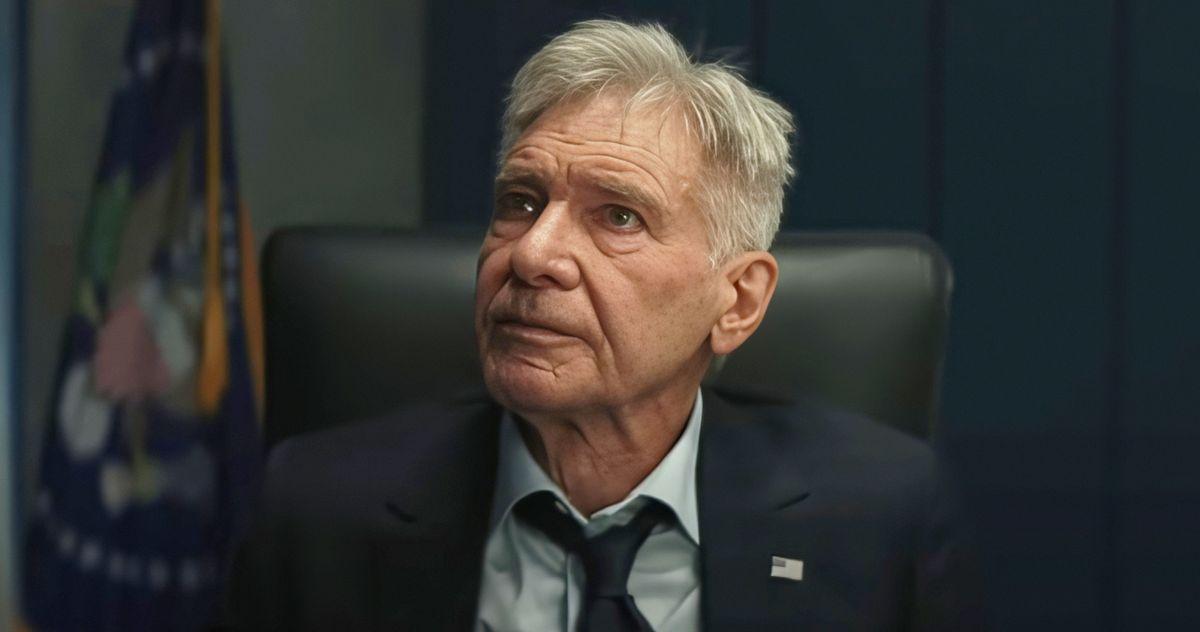Captain America: Brave New World - A Shallow Dive into Heroism

The chaotic and exhausting journey of Captain America: Brave New World introduces a handful of ideas but tackles them in the most superficial manner.
“You’re not Steve Rogers,” newly elected President Thaddeus Ross (Harrison Ford) sharply retorts to Sam Wilson (Anthony Mackie), the freshly crowned Captain America, during a climactic scene. The line is designed to pierce. Sam struggles under the shadow of Steve Rogers, burdened by the fear of being unworthy. While this emotional conflict might have been part of the original script, it wouldn’t be surprising if it was later inserted to acknowledge the film’s struggle to escape the shadow of its adored predecessors. “Steve gave them something to believe,” Sam hears. “You shall give them something to aspire to.” However, Brave New World, in its current state, is not a film anyone would aspire to create.
This is technically the fourth installment in the Captain America series, and it’s the first to star Mackie—an excellent actor recognized for his roles in films like Captain America: The Winter Soldier and Ant-Man. Sam Wilson has picked up the shield from Chris Evans’ Rogers, who stepped away from the Marvel Cinematic Universe after Avengers: Endgame. (Evans made a comeback in Deadpool and Wolverine because in this universe, nothing truly disappears.) Sam, previously known as Falcon, also starred in the series Falcon and the Winter Soldier alongside Bucky Barnes (Sebastian Stan), another of Steve’s close allies. Though Sam now embodies Captain America, he refuses to use the super-serum that transformed Rogers from a frail Brooklyn boy into a formidable super-soldier, amplifying his feelings of being an impostor. Fortunately, Bucky Barnes encourages him, affirming “He gave you that shield because of who you are, not because you’re the strongest.” (Traditionally, this sincere moment is followed by a jest, “Did your speechwriters assist you with that?” Sam quips.)
The trope of a hero plagued with self-doubt is familiar. Nonetheless, it could have been intriguing if treated with depth, intelligence, or wit here. Such an exploration could have offered Mackie a dynamic role—an actor proficient in portraying tension and inner conflict. Astonishingly, the film leaves him with little support. The narrative merely skims Sam’s struggles, neglecting to delve into them meaningfully. Another intriguing moral conundrum, Sam’s collaboration with Ross—a relentless general notorious for his crusade against the Hulk and his erstwhile vendetta against the Avengers—is also glossed over. (Ross, initially portrayed by the late William Hurt, first debuted in 2008’s The Incredible Hulk, an underwhelming movie seemingly excluded from the Marvel canon, yet surprisingly significant here. Again, everything somehow returns in this universe.)
“Ross may not change, but he is the president,” Sam conveys to Isaiah Bradley (Carl Lumbly), a seasoned Black veteran revealed to be “the Forgotten Captain America.” Having fought during the Korean War and injected with the super-soldier serum, Bradley was later imprisoned and subjected to experiments by the U.S. government. Understandably, he can’t fathom why the new Captain America sides with Ross, a man notorious for his misdeeds, including devastating much of Harlem pursuing the Hulk. Allies turning enemies is nothing new in these films—Bucky Barnes was a former villain—and exploring alignment with institutional authority could have been fascinating. At their peak, superhero narratives can probe such themes effectively. But unfortunately, not with such superficiality or undue reverence. The entire subplot feels like a subtle nod to Marvel and Disney’s real-world proclivities. Ideas lose significance when reduced to mere rationalizations.
On a more generic action level, Brave New World disappoints, feeling more obligated than exhilarating. It’s remarkable to recall when Marvel movies thrived on dynamic, creative action sequences, leveraging cutting-edge effects to showcase their heroes’ abilities. Today, however, we’re often met with predictable, tedious fare—a perhaps inevitable result after delivering 35 films and an indication of the complacency that’s set over the years. Have they exhausted every move, punch, and launch? Last year’s Deadpool v. Wolverine mirrored Marvel’s creative drought and succeeded by parodying its existence. So, what role do other films play now?
Despite its flaws, Brave New World succeeds moderately in choreography—the fight scenes deliver, and Captain America’s iconic shield toss, combined with his new Falcon wings, maintains a touch of thrill. However, the more visual effects-centric battles lack vitality, inducing sleep. As Ross morphs into Red Hulk, daydreaming about a Has Fallen spin-off featuring Gerard Butler protecting President Red Hulk from assassins is a telltale sign of the film’s failure.
The narrative also suffers an inherent challenge in invoking urgency after characters have endured so much. Even without recalling past movies, Ross reminds us that the world is still grappling with the aftermath of half of humanity being obliterated temporarily—a fact amusingly presented as an afterthought. The main antagonist here, the Leader (Tim Blake Nelson), a classic Hulk enemy from the comics, features bizarrely expanded brain matter and can predict events through calculated odds. How are we to invest in such a villain with beings like Dr. Strange around? One might suspect that the Leader (despite being the main adversary, he does surprisingly little) initially intended to critique the tech-savvy dystopia we inhabit. An unoriginal notion, admittedly, but at least it would mean something.
Squint, and you might glimpse what Captain America: Brave New World aspired to be—a departure from the grandiose Chris Evans’ Captain America films, a more intimate action thriller devoid of alien invasions or fantastical elements, focusing on villains in suits wielding guns and fists, free of cosmic quests and magic relics—a narrative device stretched thin over a decade ago. Surely, a hero relying on wits and courage instead of a super-serum fits this frame. But somewhere, control slipped away, resulting in the confused, shallow spectacle we see now. It begs the question of whether Marvel, given excessive interference and doubt, can ever craft such a film. Trapped by their triumphs, they’ve transformed their esteemed production into an unwieldy, chaotic assembly line.